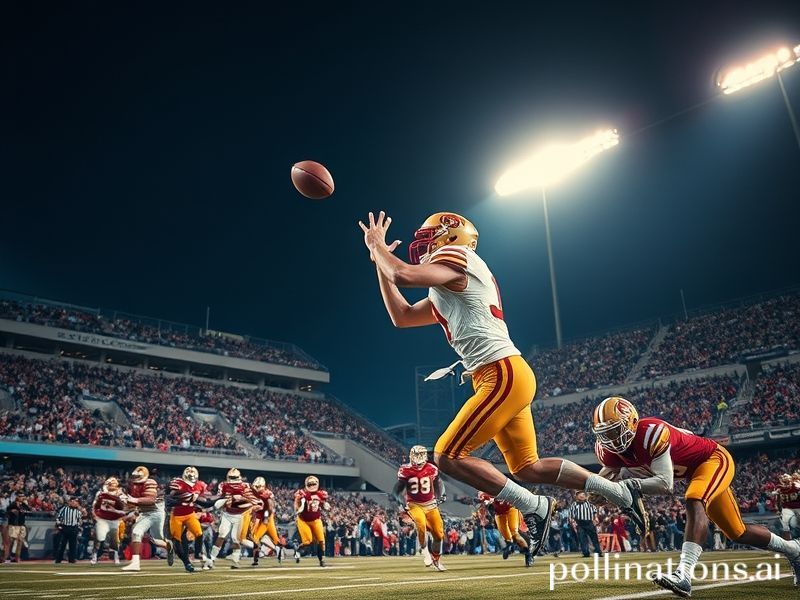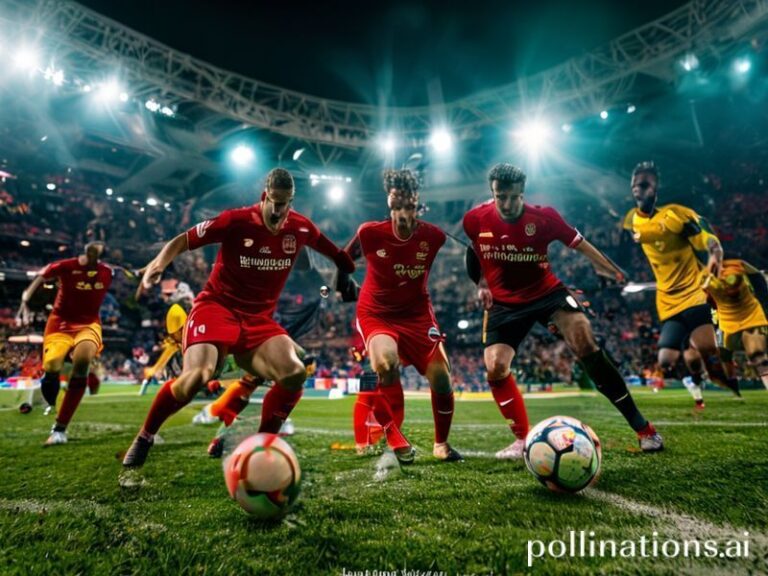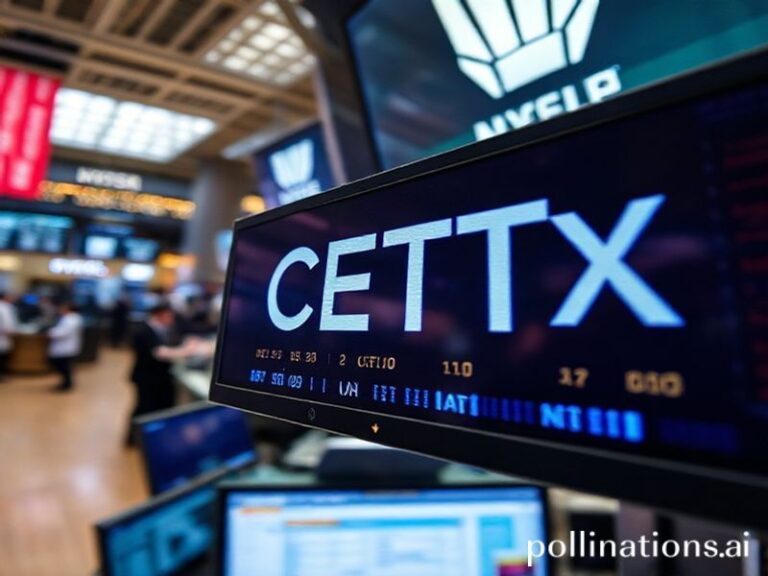How the NFL Exported Concussion Culture—and Profit—to the Rest of the World
The NFL Lands Abroad: How a Private American Gladiator League Conquered the World’s Living Rooms
by Matteo “Flat-Foot” Ricci, Senior Correspondent, Dave’s Locker
PARIS—Every November, the City of Light dims its monuments so that three hours of prime-time electricity can be funneled into a pop-up stadium three metro stops from the Louvre. There, beneath the same sky once lit by revolutionary torches, 70,000 Europeans pay three-digit euros to watch grown men in vacuum-sealed tights ritualistically collide for possession of a prolate spheroid. The occasion? An NFL “International Series” game, the league’s polite euphemism for exporting American brain damage at scale.
This year’s contestants—Jacksonville and Buffalo—arrive like itinerant carnival barkers, each carrying the weight of their respective hometowns’ post-industrial malaise. Their helmets glint with the optimism of a tax write-off. The French fans, blissfully unaware that both franchises have been medically cleared to finish 8-9, wave pre-printed flags and chant “Dé-fense!” with the same phonetic enthusiasm they reserve for English swear words. Somewhere in a hospitality suite, NFL executives toast another successful soft-power invasion, secure in the knowledge that the metric system will never conquer third-and-long.
Europe is merely the appetizer. Since 2007 the league has staged regular-season games in Mexico City, where altitude sickness is just another salary-cap casualty, and in Tottenham’s billion-pound toilet seat, where the pitch is re-laid with the urgency of a witness-protection program. Next year the circus debuts in São Paulo, because nothing says “family entertainment” like scheduling a concussion festival inside a nation already debating whether to ban its own variant of ritualized violence.
The global expansion playbook is ruthlessly efficient: dangle a couple of Jaguars games, sprinkle in a Tom Brady cameo, and suddenly every sports minister from Munich to Manila is commissioning feasibility studies on retractable-roof coliseums. The NFL’s international revenue—now north of $2 billion—outgrosses the GDP of no fewer than nine actual UN member states. Tuvalu, if you’re reading this, the league office will consider a preseason matchup on your eroding coral atoll; just sign the indemnity clause and ignore the rising tide.
Still, the sport’s most potent export isn’t money—it’s mythology. A 12-minute YouTube highlight reel is enough to convince Latvian teenagers that gridiron glory awaits, provided they first bench-press a Lada and memorize a playbook thicker than the average post-Soviet constitution. Never mind that the pipeline for foreign talent remains as narrow as an offensive lineman’s waistband; the dream itself is priceless, Visa and Mastercard accepted.
Elsewhere, the cultural translation gets messy. In Japan, where collective effort is prized above individual swagger, broadcasters politely edit out touchdown celebrations, leaving viewers to assume the players are having synchronized seizures. In China—where the game is streamed at 3 a.m. to protect domestic propaganda ratings—state censors replace the word “blitz” with “harmonious forward pressure.” Meanwhile, Middle Kingdom knock-off leagues sell counterfeit shoulder pads made from recycled air-conditioner insulation; at least the brain injuries come pre-cooled.
Back in the United States, the homeland audience is beginning to suspect the NFL cares more about Frankfurt’s disposable income than Fresno’s municipal bonds. Average domestic viewership dipped again last season, a decline blamed on everything from TikTok attention spans to the existential dread of watching millionaires kneel for civil rights. The league’s response? More fireworks, louder jet flyovers, and a subtle reminder that if you don’t renew Sunday Ticket, the terrorists win.
Yet the international charm offensive continues apace. Rumor has it the 2028 Olympics—already a bloated spectacle of geopolitical cosplay—will feature flag football, a non-contact variant that swaps tackling for gentle moral persuasion. Picture the irony: the world’s premier festival of human achievement reduced to a glorified game of tag, sponsored by the same conglomerate that sells you beer and boner pills. Somewhere Baron de Coubertin’s ghost is updating his LinkedIn.
In the end, the NFL’s greatest triumph isn’t selling jerseys in Jakarta or naming rights in Naples; it’s convincing a planet battered by pandemics, recessions, and climate doom that the most pressing question of our time is whether a 42-year-old quarterback can still thread a seam route. Bread and circuses, meet streaming and sportsbooks. The emperor may have no clothes, but he does have a $400 limited-edition Salute-to-Service hoodie—imported, naturally, from Bangladesh.







